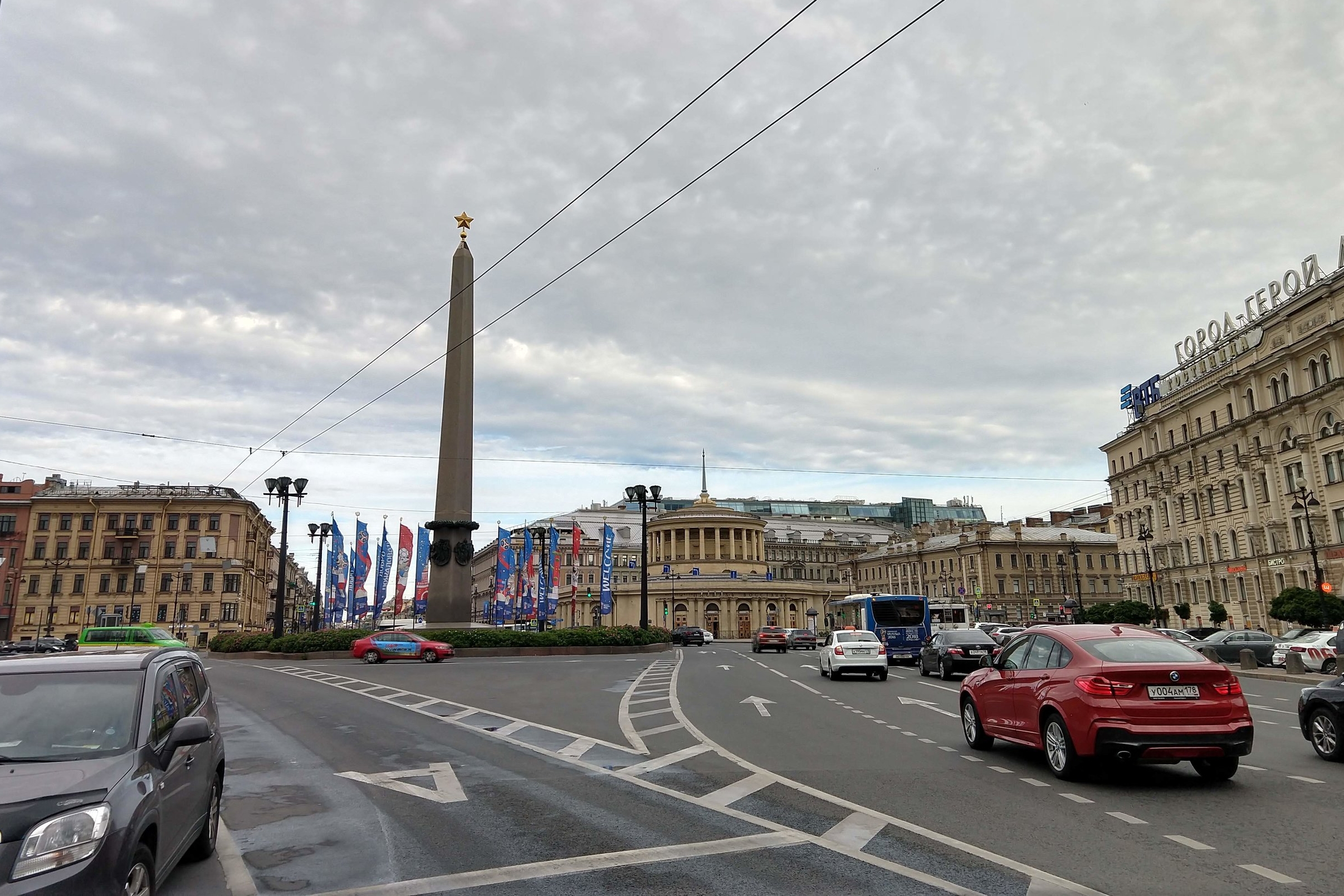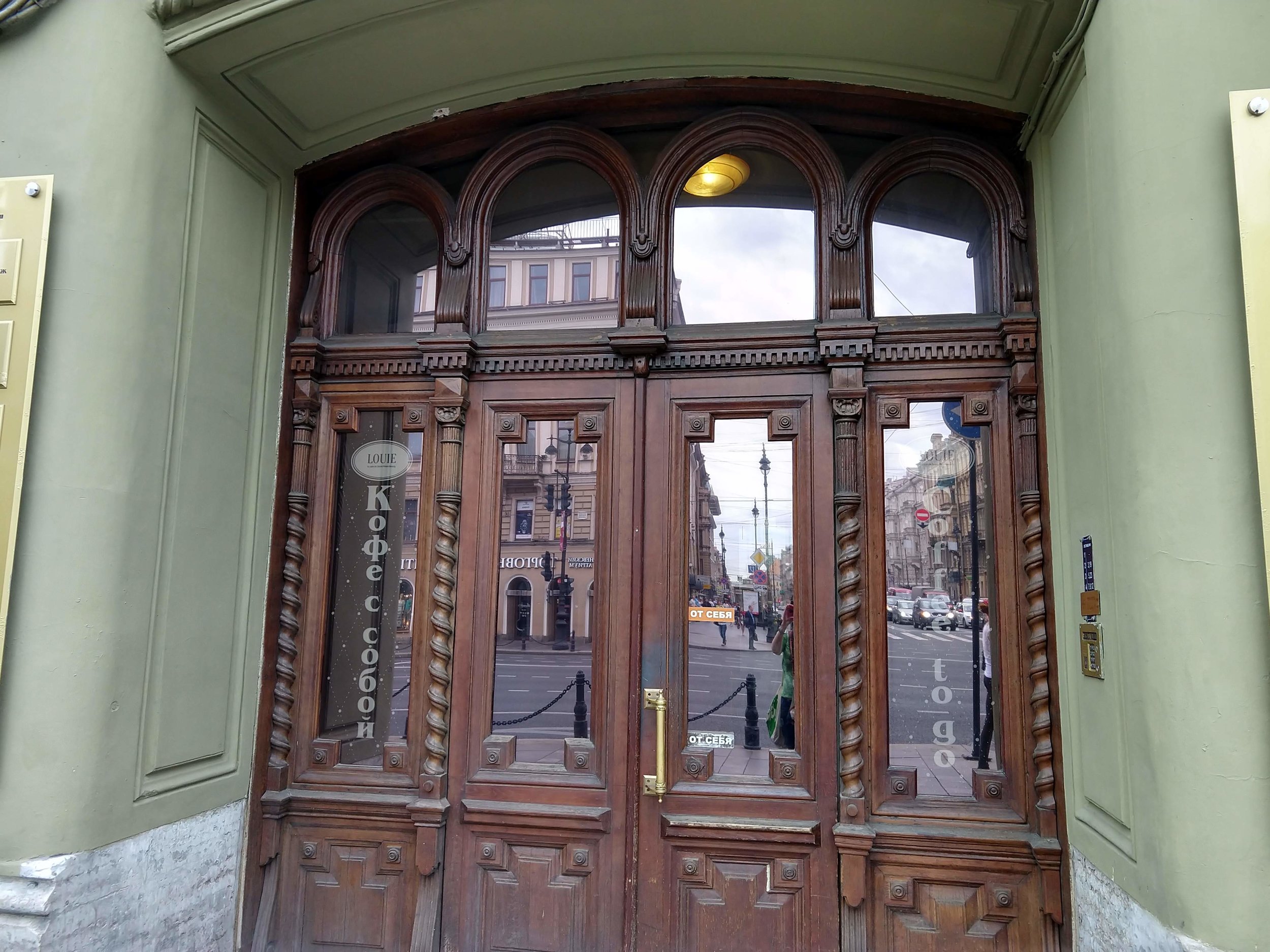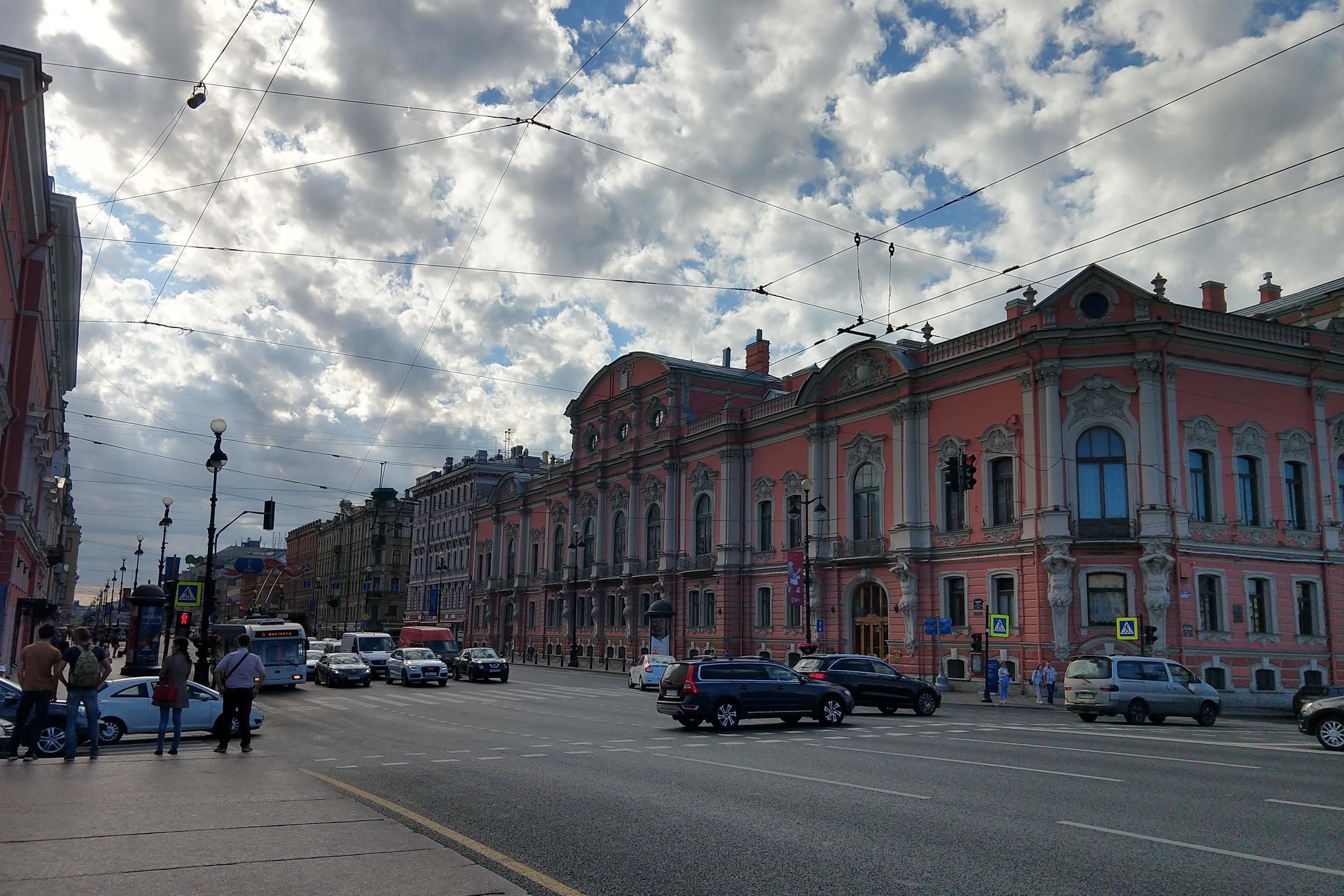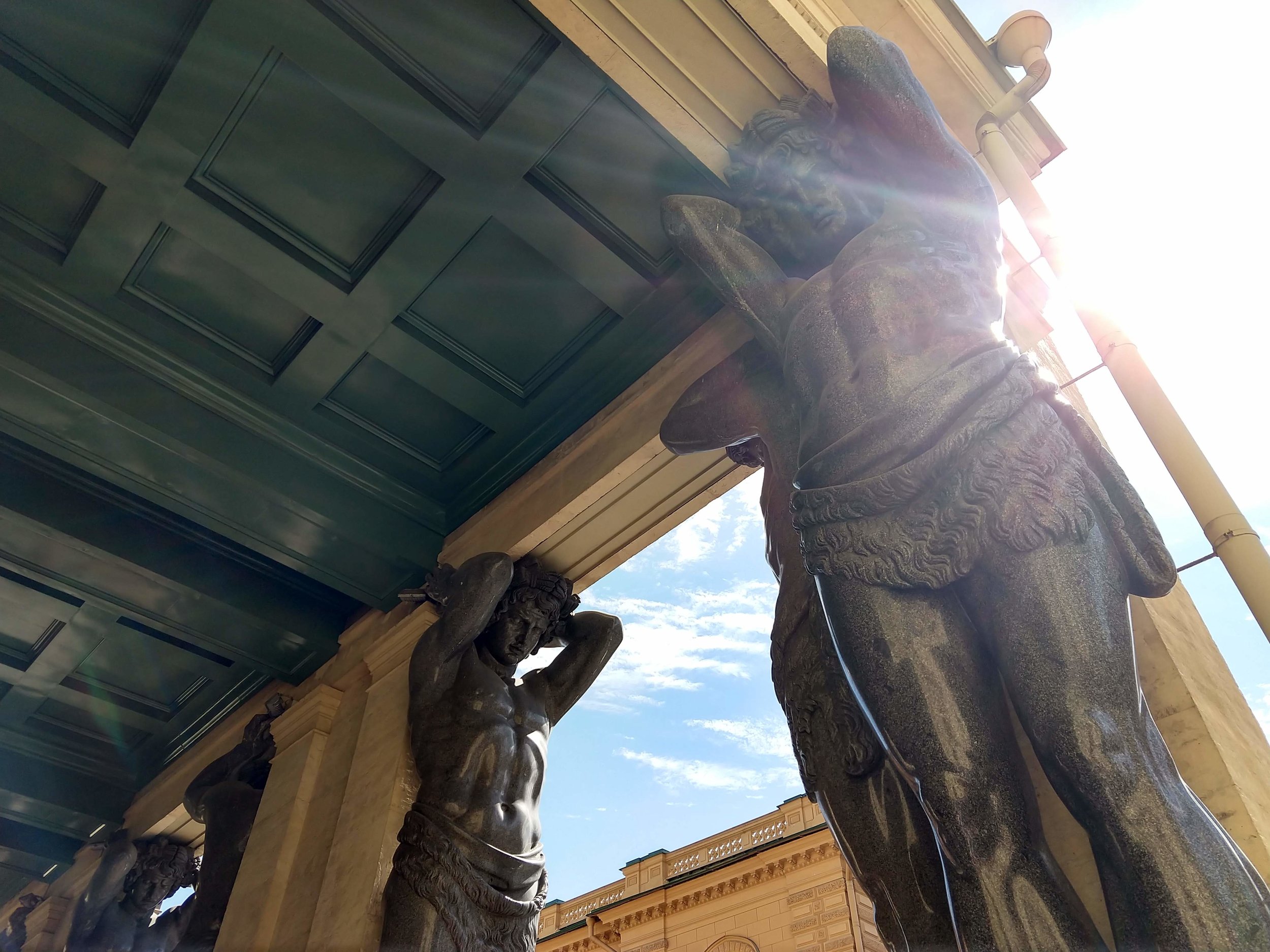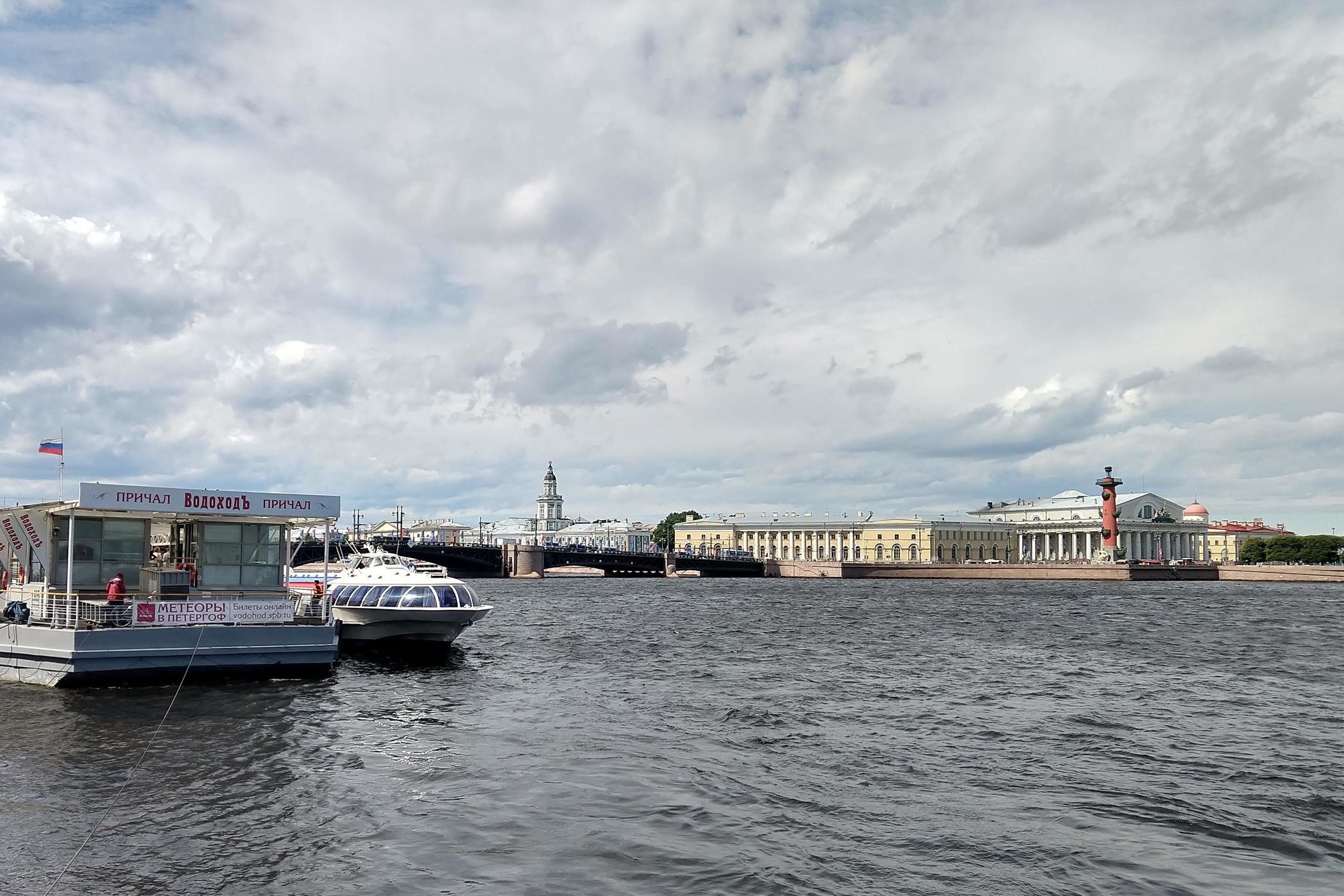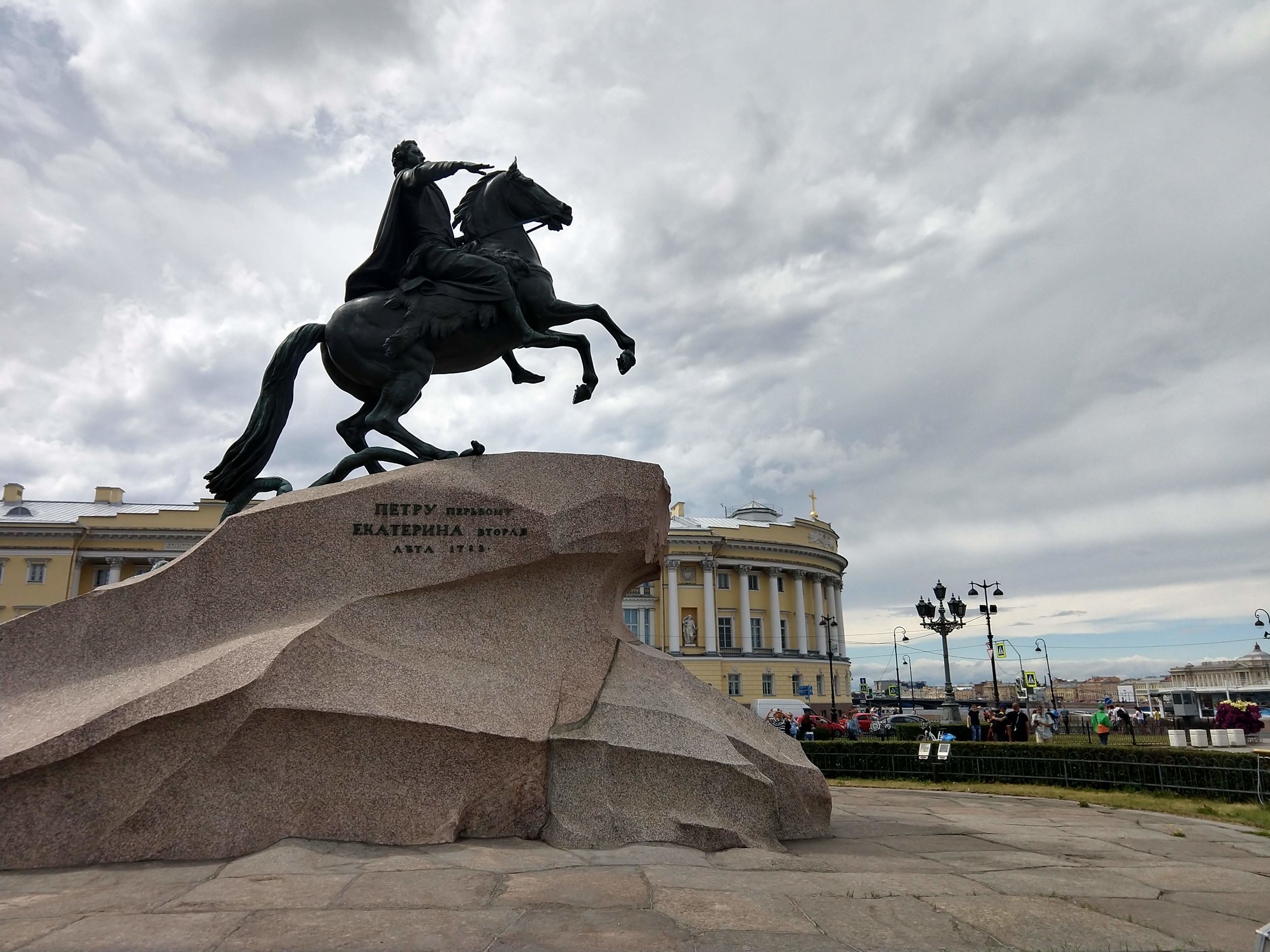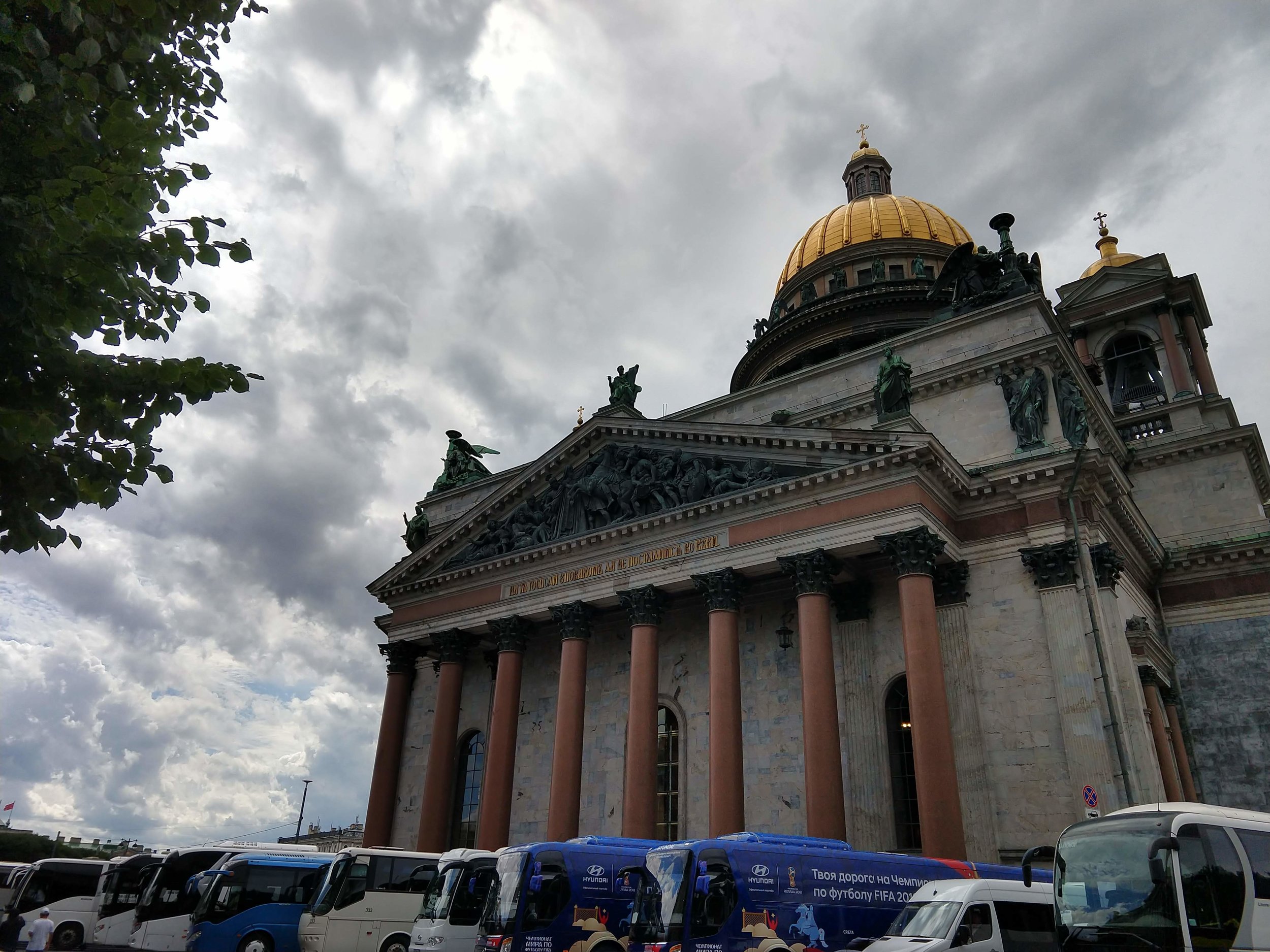GSP Stopover: How to stay awake in St. Petersburg
After Russia, I planned to head west to Sweden. But since I’ve always believed in making the most of scant time, I thought I could manage not, but two, short stopovers in between: first, a day of sight-seeing in St. Petersburg, then a quick overnight in Helsinki to see friends.
To make the most of this relaxing travel schedule, I booked a night train from Moscow to St. Petersburg that arrived around 5 a.m. That way, I’d have almost eight hours for sightseeing before my mid-afternoon train to Finland.
As with several other bright ideas on this trip, I made ample preparation for possible travel disruptions. I ate a leftover dinner before heading off to the train station, and packed one last Moscow beer for the ride.
Gaining entrance to my train proved easier than in Kyiv, but entrance to my ticketed train berth was another matter.
By this point, hauling my roughly 50 kilos (100 pounds) of luggage had assumed a routine. First I donned the close-to-23 kilos/50 pounds backpack and fastened the hip belt. Then, one at a time, I took off the shoulder straps to add my computer/miscellanea bag (left shoulder) then what was becoming my food and sometimes sourdough starter bag (right shoulder). Finally, one free hand tugged the rolling suitcase that my parents gave me 22 years earlier, the wheels of which are showing distinct arthritis.
If this made for a slightly inelegant picture, I didn’t mind. But the aisle of my St. Petersburg train challenged more than vanity: I could hardly move.
Unlike all the other night trains I’d ridden thus far, the one I took to St. Petersburg halved the usual aisle up the length of the car to make room for a narrow row of seats-cum-beds than ran parallel to the tracks. Once I had finally wiggled my way there, I discovered I had one of these beds.
At first glance, I had the bunk above two seats that faced each other over a table of sorts. But as I would discover, the seats reconfigured to make a lower berth, leaving me just my bunk to store my luggage and … sit? But that wouldn’t work, for the bunk assigned to me had a “roof” too low for upright sitting and, besides, my arms and legs would hang out into the already narrow aisle.
Since I was, however, blocking said aisle, I had no choice but to start the tricky business of trying to lift and maneuver my 23 kilo/50 pound backpack onto the bunk almost at the height of my head.
As I began to attempt this feat (which included relocating several heavy items of bedding), a middle-aged woman sitting under my bed began talking in either Ukrainian or Russian. From her gestures to the “roof” of my bed, I gathered she thought I should instead hoist my bags to a high shelf many inches below the ceiling — and well above my head.
This seemed far beyond either the strength of my arms or the bounds of good sense. But after I’d cleared my bunk and stowed the backpack, I had almost no room for a suitcase, much less my body.
When the woman indicated through gestures that she was willing to help me move things, I climbed the small protrusions that apparently served as a ladder and started to lift my bag higher, while she helped push it up from beneath.
Meanwhile, families and other travelers continued to board and unpack around us, in a cheerful din of preparation for our cramped, communal journey. (Unlike all other night trains I’d ridden, this one also had no doors closing off compartments, so one could see and hear other passengers down the length of the train car.)
A family settles in for the night.
Only after the woman and I had wrestled my backpack up to the roof and somehow wedged it in place did a man from another compartment materialize to help lift my rolling suitcase alongside the bag.
Once he disappeared and I took the seat below my bed, I shook the woman’s hand. I’m not sure what such gestures meant in her culture, but it seemed the most appropriate way to say thanks.
My backpack's eventual resting place.
By the time I’d written some postcards and drunk my beer (which I later learned the Russians might not have allowed the way German trains would — oops), the car was turning into a sleep room.
Our car's assigned train employee checks on passengers.
I unpacked the washcloth kindly included with the train’s starched linen kit for passengers and went to brush my teeth. When I returned, the woman who’d helped me move my bag had set up her bed in the spot where our facing seats had been.
But once I settled into my own bed, I couldn’t sleep. At some point, I felt the early signs of a cold start trickling down my throat, which soon caused it to ache. By the time my fellow passengers started rising and readying to disembark a few hours later, I was exhausted and sure that I’d started my first head cold of the trip.
The nearest bathroom had closed by the time I went to brush my teeth, so I had to go and wait in line for the adjoining car’s problem. I also discovered a problem.
In order to maintain such luxuries as our complementary washcloths, that rail company kept strict tabs on the linens administered. As we neared our journey’s end, the woman assigned to oversee the car came through to make sure she had everyone’s sheets and pillowcases.
Thanks to translation help from a young passenger sitting nearby, I learned she also wanted my washcloth … which I now realized I’d forgotten in the locked car bathroom. She unlocked the room for me with evident signs of weariness at my ignorance of train protocol, Fortunately, though, the cloth was still there, hanging on the wall.
Even with my steri-pen, I never trusted the train water for drinking.
At around 5 a.m., the train pulled into St. Petersburg, I retrieved my bags without injury and managed to extract myself and the 50 kilos/100 pounds from the carriage. Given our far-north latitude, the sun was already well up.
Once inside the train station, I spent the first hour doing little more than to find a seat and sit, slowly drinking a cup of caffeinated breast milk … I mean, coffee. By the second hour, I’d revived enough to drag all 50 kilos down to a luggage room that didn’t take cash, then back up to an ATM and finally down again to a storage locker that I almost feared wouldn’t hold both backpack and suitcase.
By some small miracle it did, so I set out around 7 a.m., hauling a much lighter load for my morning of seeing the sights of St. Petersburg. I had learned about a free walking tour that left mid-morning, so I spent two hours visiting drug stores (first for vitamin C, then sunscreen) and wandering toward the historic center from which my tour departed.
When I reached a Catholic church near the tour’s starting point, I was so tired — and still so early for the tour — that I stopped to read a few placards on its history, then nap for a bit in one of the chairs set up for services.
I would need that rest. Once the tour began, our guide led us through a brisk tour of palaces, dead rulers and St. Petersburg’s history as one of the more European-leaning cities in Russia. I’m sorry to say I’ve forgotten most of the detail. I generally like walking tours, but I was tired.
This particular walking tour drew a crowd that numbered close to 50, which it made it less personal and harder to keep together. My favorite moment came when the guide stopped to read us a poem, first in English, then the original Russian.
What kept me going through the nearly 10 kilometers (6 miles) that it seemed we must have covered in three hours, was my hope that we would eventually see the famously dramatic Church of the Savior on Spilled Blood. But alas, she concluded the tour with another landmark a few streets away.
Seeing how little time left I had to see the church, buy postcard stamps, collect my luggage and catch the train to Finland, I broke away mid-speech and pulled out my best Manhattan stride to get a drive-by picture of the church on my way back to the train station.
They seem to have been repairing one of the towers.
If I’d thought the day’s drama would end in a victory over sore feet, fatigue and a semi-hidden post office, I was wrong.
By the time I reached the station from which my train to Finland departed, I had minutes to spare. After unloading all my bags for a security check, I reloaded them and hurried inside to the area where I thought I’d find my train.
But after seeing a few confusing signs and asking some strangers, I learned that I’d come to the domestic terminal. International trains left somewhere else. Now beginning to worry that I’d miss the train, I hustled as well as I could to get my 50 kilos back outside the building, toward the place where I’d exited the subway and then around a corner where signage disappeared.
The first thing resembling a side entrance only cost me precious seconds in the few remaining minutes before my train left. Sweat trickled down my sides as I continued my desperate shuffle toward what seemed like a dead end and missed train.
At last I drew within sight of the place where I evidently needed to catch my train. Upon hearing my train name, someone came out to help me carry my suitcase up the ramp and in the door to yet another all-bag security check. By now, I had maybe five minutes to spare.
The man who checked my passport seemed relaxed, however, and told me I would make it. When I finally made it outside to the proper platform and into the train, I was drenched. I had barely unloaded my bags and sat down when the train started moving.




